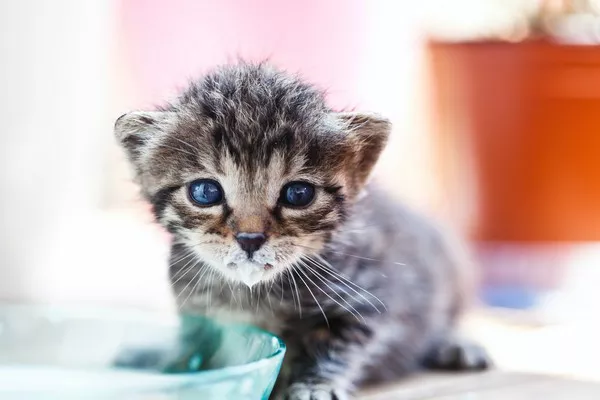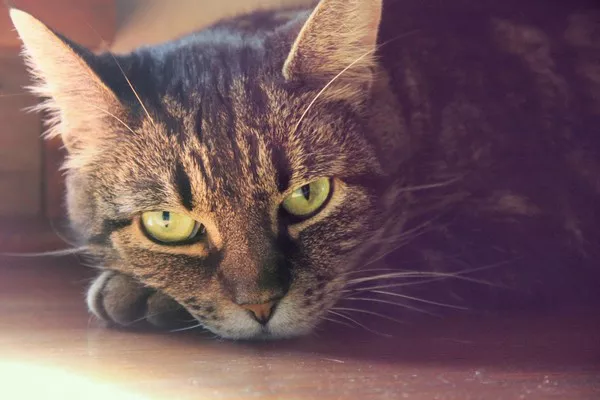Cats are obligate carnivores, which means their diet must primarily consist of meat. Unlike dogs, which are more omnivorous, cats have evolved to thrive on a diet rich in animal proteins. This dietary requirement stems from their ancestral lineage, where hunting and consuming prey were essential for survival. As pet owners, understanding the healthiest meat options for our feline companions is crucial for ensuring their well-being. This essay explores the various types of meat suitable for cats, emphasizing nutritional content, digestibility, and potential health benefits.
The Nutritional Needs of Cats
Before diving into specific meats, it’s essential to understand the nutritional requirements of cats. According to the Association of American Feed Control Officials (AAFCO), a cat’s diet should consist of:
High Protein: Cats need a higher protein intake than many other domestic animals. Proteins are vital for growth, maintenance of body tissues, and energy.
Essential Amino Acids: Cats require certain amino acids that they cannot synthesize on their own, such as taurine, arginine, and methionine.
Fats: Healthy fats provide energy and support skin and coat health. Omega-3 and Omega-6 fatty acids are especially beneficial.
Vitamins and Minerals: Cats need various vitamins (like A, D, E, and several B vitamins) and minerals (such as calcium, phosphorus, and potassium) for overall health.
Given these requirements, meat becomes an indispensable part of a cat’s diet, providing not only the necessary proteins but also essential nutrients.
Evaluating Meat Options for Cats
When considering the healthiest meats for cats, several factors come into play, including nutritional value, digestibility, and potential health risks. Here’s a breakdown of popular meat options:
Chicken
Nutritional Profile: Chicken is a widely accepted protein source for cats. It is rich in essential amino acids and low in fat, making it a lean protein option. Chicken also contains vitamins B6 and B12, niacin, and phosphorus.
Health Benefits: The high digestibility of chicken makes it a great choice for cats, especially those with sensitive stomachs. It can also help maintain a healthy weight due to its low-fat content.
Considerations: While chicken is generally safe, it should always be cooked to avoid the risk of salmonella or other bacterial infections. Additionally, some cats may develop allergies to chicken, so monitoring for any adverse reactions is crucial.
Turkey
Nutritional Profile: Similar to chicken, turkey is a lean meat that is high in protein and contains essential nutrients like selenium and zinc.
Health Benefits: Turkey can be a good alternative for cats that are allergic to chicken. It is also low in fat and can aid in weight management.
Considerations: As with chicken, turkey should be cooked thoroughly. Some processed turkey products, such as deli meats, can contain preservatives and high sodium levels that are not suitable for cats.
Beef
Nutritional Profile: Beef is a rich source of protein and contains essential nutrients like iron, zinc, and B vitamins. However, it is generally higher in fat than poultry.
Health Benefits: Beef can provide a hearty meal for cats, and its rich flavor is often appealing. The iron content is beneficial for maintaining healthy blood levels.
Considerations: Some cats may find beef harder to digest than other meats. Additionally, the fat content can lead to obesity if fed in excess. Raw beef should be handled with care to prevent bacterial contamination.
Fish
Nutritional Profile: Fish, such as salmon and tuna, is high in protein and omega-3 fatty acids, which are beneficial for skin and coat health.
Health Benefits: Fish can help reduce inflammation and support heart health due to its omega-3 content. It is also highly palatable for most cats.
Considerations: Fish should not be the primary protein source for cats, as it can lead to nutritional imbalances if fed exclusively. Certain fish, like tuna, can also contain high levels of mercury, which can be harmful in large quantities. Additionally, some cats may develop allergies to fish.
Lamb
Nutritional Profile: Lamb is a rich source of protein and contains essential fatty acids and vitamins. It is often recommended for cats with food sensitivities.
Health Benefits: Lamb is highly digestible and can be beneficial for cats with allergies to more common proteins like chicken or beef. Its fatty acid content can also support skin health.
Considerations: Lamb can be higher in fat than other meats, which may not be suitable for overweight cats. As always, it should be cooked properly to avoid foodborne illnesses.
Rabbit
Nutritional Profile: Rabbit is a lean meat that is high in protein and low in fat. It also contains essential nutrients like B vitamins and phosphorus.
Health Benefits: Rabbit is often recommended for cats with food allergies or sensitivities due to its novel protein status. It is also highly digestible, making it suitable for cats with sensitive stomachs.
Considerations: Rabbit can be more expensive and less readily available than other meats. As with all meats, it should be cooked to ensure safety.
Raw vs. Cooked Meat: What’s Best for Cats
The debate between raw and cooked meat diets for cats is ongoing. Proponents of raw feeding argue that it mimics a cat’s natural diet and can lead to better overall health, including improved coat condition, dental health, and energy levels. However, there are significant risks associated with feeding raw meat, including bacterial contamination (e.g., salmonella, E. coli) and nutritional imbalances if not properly formulated.
On the other hand, cooked meat eliminates the risk of bacterial infections and can still provide the necessary nutrients, albeit with some loss of certain vitamins. Cooking meat can also make it easier to digest for some cats.
Commercial Cat Foods: An Alternative
For many cat owners, providing a balanced diet can be challenging. Commercial cat foods are formulated to meet AAFCO standards and can offer a convenient alternative. These foods often contain a mix of meats, vitamins, and minerals, ensuring that cats receive a well-rounded diet.
When selecting commercial cat food, look for high-quality brands that list meat as the primary ingredient and avoid those with excessive fillers or artificial additives. Additionally, consider your cat’s specific health needs, age, and activity level when choosing the right food.
Special Considerations for Cats with Health Issues
Certain health conditions may require special dietary considerations. For example:
Obesity: Lean meats like chicken and turkey can help maintain a healthy weight.
Allergies: Novel protein sources like rabbit or lamb may be beneficial for cats with food sensitivities.
Kidney Disease: Cats with kidney issues may require a diet lower in protein, making it essential to consult with a veterinarian for tailored advice.
Conclusion
Choosing the healthiest meat for your cat is essential for their overall health and well-being. While chicken and turkey are popular and nutritious options, other meats like beef, fish, lamb, and rabbit can also provide valuable nutrients. It’s crucial to consider your cat’s individual needs, preferences, and any health issues when selecting their diet.
Ultimately, whether you opt for raw or cooked meat, or choose high-quality commercial cat food, ensuring a balanced diet rich in animal protein will help your feline friend thrive. Always consult with a veterinarian when making significant changes to your cat’s diet, and monitor their health and behavior for any signs of dietary intolerance or allergies.
By understanding the nutritional needs of cats and the benefits of various meats, you can make informed decisions that contribute to a happy, healthy life for your beloved pet.
Related topic:



























